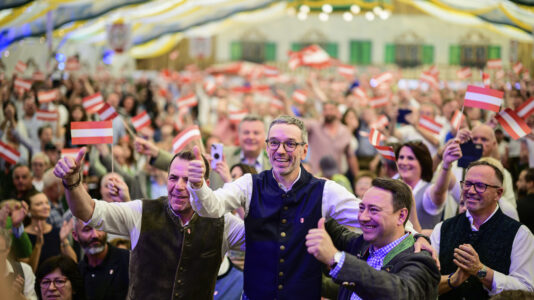German Interior Minister Nancy Faeser has announced that the government may consider revoking the protection status of Syrian refugees who have failed to integrate into Western society, almost a month after the fall of former Syrian President Bashar Assad.
Her statements come amid heightened political debate on immigration and integration, as Germany prepares for upcoming elections.
In an interview with the Funke Media Group on Sunday, Faeser indicated that Syrian refugees who do not fulfill certain residency criteria — such as being employed or enrolled in training — may be required to return to Syria. The announcement follows Germany’s decision, made just days after rebel groups, led by the Islamist Hayat Tahrir al-Sham (HTS), deposed Assad, to temporarily pause the processing of new asylum applications from Syrians.
“As our law stipulates, the Federal Office for Migration and Refugees (BAMF) will review and revoke protection grants if people no longer need this protection in Germany because the situation in Syria has stabilized,” Faeser said. “This will then apply to those who do not have a right of residence for other reasons such as work or training and who do not return to Syria voluntarily.”
However, Faeser also stressed that well-integrated Syrians — including those who have learned the German language, found jobs, and settled into communities — will be allowed to remain in the country. She added that Syrians who wish to return of their own accord should be supported, and those deemed criminals or extremists should be deported as soon as conditions in Syria permit.
Faeser’s comments come at a time when Germany’s political landscape is increasingly focused on migration. New data from the Federal Employment Agency revealed that nearly half of the 975,000 Syrians living in Germany remain dependent on state welfare benefits, or Bürgergeld.
As of August 2024, 518,050 Syrians were receiving these benefits. While some have successfully entered the job market, only 32.7 percent are employed in positions subject to social insurance contributions, compared to 65.3 percent of Germans, despite the Syrian population in the country being considerably younger on average than Germans.
Nearly half of Syrians in Germany rely on citizen's benefits, challenging the narrative that they significantly contribute to the country's labor market, as integration and employment rates remain low. https://t.co/SuxQENQIfr
— Remix News & Views (@RMXnews) December 11, 2024The governing Social Democratic Party (SPD) has changed tack in recent times, with cynics noting that a hotly contested federal election is just around the corner. The center-right Christian Democratic Union (CDU), expected to become the largest party in the Bundestag after next month’s poll, has taken a similarly tough line amid pressure from an increasingly socially conservative electorate.
As Remix News reported, CDU’s candidate for chancellor, Friedrich Merz, stated last month that Germany “cannot accept more Syrians from Syria” and argued that those who are not integrated should return to their homeland.
The debate is raging in Germany about Syrian migrants and whether hundreds of thousands will have to return to their homeland. https://t.co/IEhwy31wqc
— Remix News & Views (@RMXnews) December 16, 2024“The one-third who work and are integrated in Germany can stay,” Merz said during an appearance on ARD, “but the two-thirds who do not work, they are overwhelmingly young men, many of them can go back, and many must go back.”
Both legacy parties appear to be under pressure from the radical right-wing Alternative for Germany (AfD), which has advocated a stricter “immigration” policy for years. The AfD’s co-chair, Alice Weidel, has publicly welcomed support from U.S. billionaire Elon Musk, who recently lauded the party as Germany’s “only chance to save itself.”
Elon Musk has endorsed the Alternative for Germany party ahead of February's snap election, calling it Germany's "only" chance to be saved. https://t.co/Gdmbxgh1DY
— Remix News & Views (@RMXnews) December 20, 2024As questions remain over Syria’s political future, German Foreign Minister Annalena Baerbock traveled to Damascus on Friday. Her goal, officials say, was to assess whether Syria’s new leadership — established by a coalition of former rebel groups — can uphold human rights and create inclusive governance structures.
It should be noted that the new Islamist faction in charge in Syria refused to shake her hand but happily embraced that of her French male counterpart.






